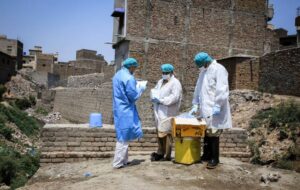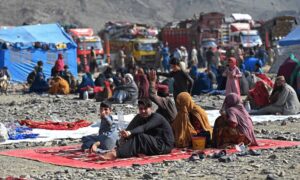PESHAWAR: Thousands of hepatitis patients in Khyber Pakhtunkhwa have been left without essential medication for the past two years, as the province struggles with a worsening financial crisis. The shortage of funds has not only stalled major development projects but has also crippled basic healthcare services, leaving vulnerable patients in a dire situation.
Impact on Hepatitis Treatment
According to official data, more than 26,000 patients—10,000 suffering from Hepatitis B and 16,000 from Hepatitis C—are waiting for medication. Despite the approval of a PKR 510 million project aimed at providing treatment, the program has been non-functional due to the unavailability of funds.The Integrated HIV, Hepatitis, and Thalassemia Control Program in Khyber Pakhtunkhwa has stalled, leaving patients vulnerable and struggling to manage their conditions. Many patients, particularly those in rural areas, rely on government support for life-saving treatments, which have been unavailable for two years.
Hospitals across the province, including Ayub Medical Complex in Abbottabad and Benazir Bhutto Shaheed Hospital, are facing an increasing number of patients registered for hepatitis treatment. In Ayub Medical Complex, there are 350 Hepatitis B and 400 Hepatitis C patients. Benazir Bhutto Shaheed Hospital reports 250 Hepatitis B and 460 Hepatitis C cases.Other hospitals, including DHQ Bannu, DHQ Batkhela, DHQ Kohat, and various district health centers, report thousands of registered patients awaiting medication. For instance, **DHQ Dera Ismail Khan currently has 800 Hepatitis B and 1,300 Hepatitis C patients without access to treatment. Across the province, hospitals are struggling to meet the needs of registered patients, with many suffering complications due to delayed treatment.
Costs and Program Setbacks
Treatment for Hepatitis B requires PKR 9,180 per patient, while the cost for a three-month treatment for Hepatitis C is around PKR 9,000. The **Hepatitis Control Program**, which was launched in 2016, has successfully treated over 60,000 Hepatitis B and 21,000 Hepatitis C patients since its inception. However, the ongoing financial crisis, particularly during the caretaker government’s tenure, has severely impacted the program’s operations. According to Dr. Tariq Hayat, the Project Director for Hepatitis Control, “Since 2016, we have made significant progress, but the shortage of funds during the caretaker government has left us in a difficult position, with only salaries being paid and no funds available for patient care.”
A Growing Healthcare Crisis
The current healthcare crisis extends beyond hepatitis treatment. With mega projects also facing delays due to the lack of funding, the overall healthcare infrastructure in Khyber Pakhtunkhwa is suffering, leaving thousands of patients without essential services. If the financial crisis persists, the situation is expected to worsen, further burdening an already overwhelmed healthcare system. The provincial government has yet to announce any concrete measures to address the growing backlog of patients or secure the funds needed to resume treatment programs.












